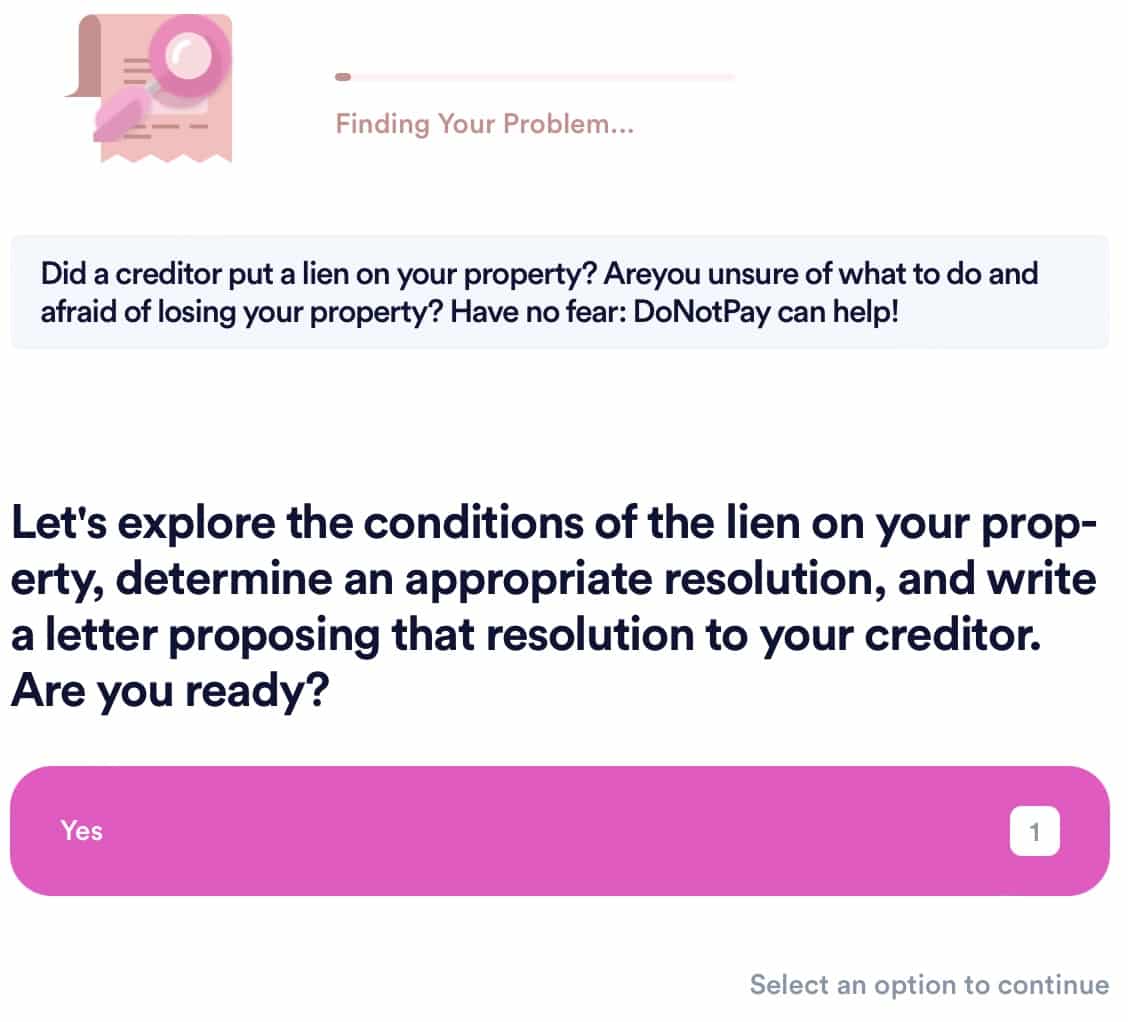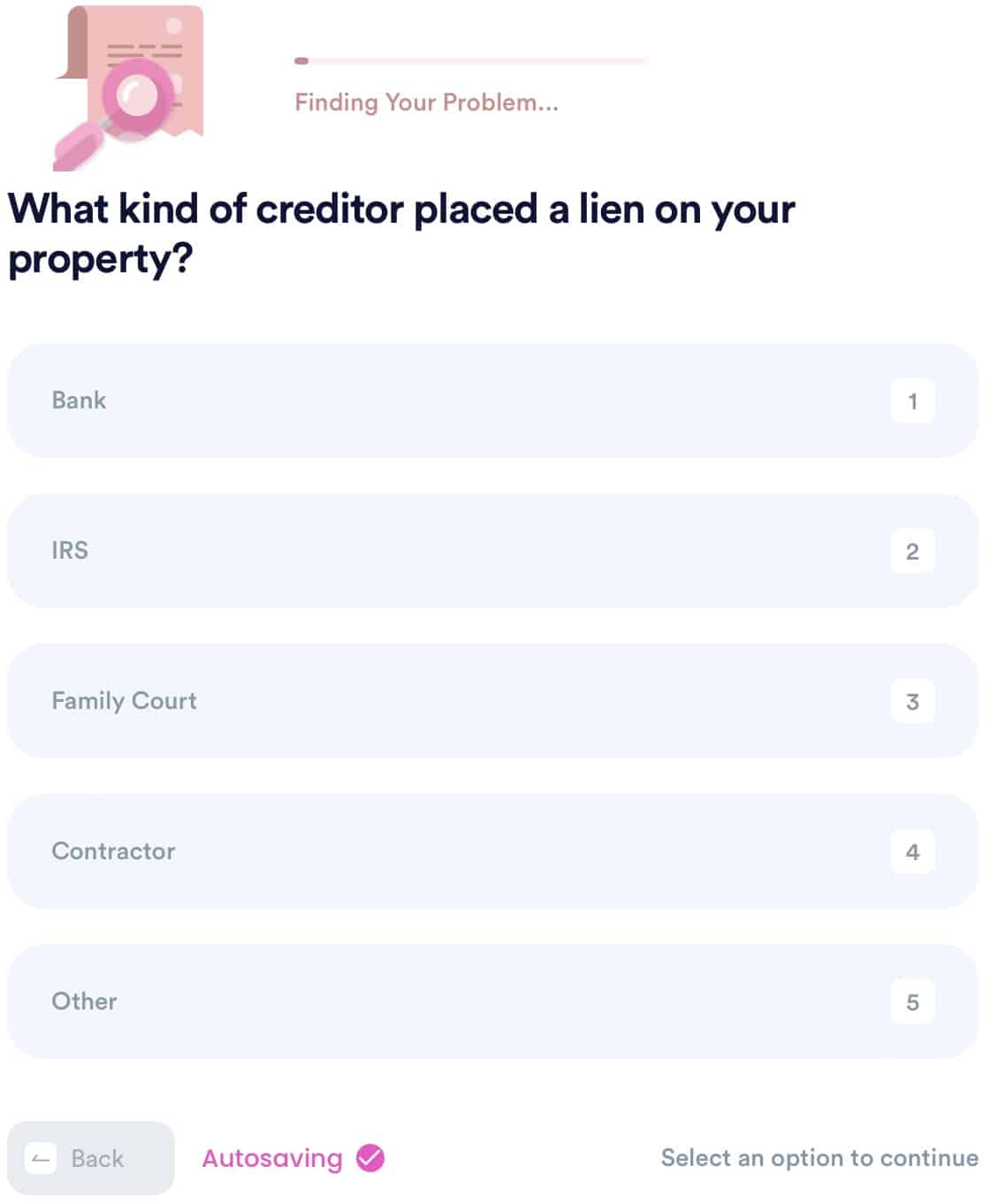When you are behind on payments for a loan or taxes, banks, courts, the government, or the IRS may place a lien on your property. If someone makes a claim against your property, they have the right to sell it as collateral for their claim against you.
The answer to your question is yes if you’re wondering if the lenders who fund your student loans can place a lien on your home. It’s rare, however. You can usually just call your lender and request an extension thanks to deferment options. Of course, the interest will keep piling up. You might need to contest that lien if your student loans were provided by a private organization (such as a neighborhood credit union).
Unfortunately, fighting a lien on your own is never easy. To prevent having your property seized, DoNotPay can assist you in leveraging the law and the interests of the party asserting a lien against you.
What Is a Lien?
A lien is a formal claim made against your assets, such as your home, car, or money in your bank account, as compensation for a debt that the claimant claims you failed to pay. The purpose of the lien is to give the claimant the right to sell any assets the court determines to be appropriate collateral in order to recoup the unpaid claim.
Can Student Loans Put a Lien On Your Home?
According to statistics, every day more than 3,000 people default on their federal student loans. Missing a payment on a student loan has far more consequences than a damaged credit score. It is well known that the government occasionally sues borrowers who default on their loans. If the federal government prevails, they may encumber your property and even compel a sale.
The government can also garnish income sources like:
Who Else Might File a Lien Against My Property?
Liens can be filed for many different reasons in addition to student loans. These include:
How to Check If I Have a Lien on My Property?
If you are behind on payments, it is crucial to look into liens. The table below explains the two methods for determining whether a piece of property is subject to a lien.
| Method | Details |
| Check your county records | Liens are matters of public record. Check with your county recorder, county clerk, or county assessors office to see if the government has placed a lien on your property. |
| Use online lien search tools | Several companies offer title and property lien search tools. Try online search tools such as:
|
| The county property appraiser website | You can also search your countys property appraisers website. |
How to Get a Lien Off Your House
By doing the following, a lien against your property may be discharged:
Remove a Lien With DoNotPay
The DIY lien removal procedures are laborious and time-consuming. You can save your property through DoNotPay. DoNotPay can gather data about your lien situation and write to the creditor who put a lien on your home asking for a renegotiation of the terms of your debt in light of your needs.
When you renegotiate your debt, we can also complete a Release of Lien form and send it to your creditor for signature. This will help you remove the lien from your record and out of your mind. In this manner, you can secure your property and get rid of your lien.
Here is how to get started:



DoNotPay Can Help
According to the Department of Justice, over 3,300 student loan borrowers have been served with court summonses in the recent years due to default. Most of the time, the borrowers lose, giving the government the right to put a lien on their house and even compel a sale. DoNotPay can assist if you are in danger of losing your home because of an unpaid student loan. Contact us today to learn more.
Want your issue solved now?
Let DoNotPay solve this problem for me.
We have helped over 300,000 people with their problems. Sit back and relax while we do the work.
Want your issue solved now?
FAQ
Can you lose your house for student loans?
Risk losing your home by making your once-unsecured student loans secured by your mortgage. Since your home serves as collateral for your mortgage, you risk losing it if you default on the loan because the payments are higher.
How do I protect my assets from student loans?
- Get a life insurance policy. Ensure that it is sufficient to pay off the balance of your private student loans.
- Keep assets out of probate. …
- Put the inheritance in a trust.
What happens if you dont pay your student loan?
Your loan may eventually default if you don’t make your student loan payment or make it late. National credit reporting agencies will be informed if you default on your student loan. Your credit rating and potential borrowing capacity could be harmed by this reporting.
Are student loans liabilities on mortgage?
Your ability to obtain a mortgage may be hampered, but not impossible, by student loan debt. Student loan debt is taken into account by lenders when calculating your total debt to income (DTI) ratio, which is a crucial determinant of your ability to make future mortgage payments.
